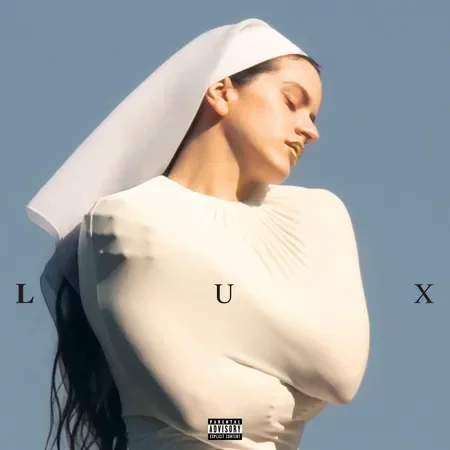Rosalia Is The Light
Rosalia for Lux
In the last decade or so, seemingly more than ever, the boundaries of what we consider “pop” music have been stretched and manipulated and, ultimately, expanded well beyond what previously defined the genre. And the musical landscape, especially now in the 2020s, has been made all the more exciting and vibrant for it. Rosalia has been doing her part since her emergence in 2017, her sound blending that of reggaeton, bachata, and traphouse, defying both genre and language to mark her first appearance on the US charts with her hit record Motomami in 2022 - which also peaked at number 1 on the Latin Pop charts. But her latest release, Lux, is out of left field, even for an artist like Rosalia.
The lead single “Berghain” shocked fans with a grand orchestral arrangement (performed by the iconic London Symphony and orchestrated by Kyle Gordon) and Rosalia’s soaring operatic vocals, with which she sings in both Spanish and German, and is accented by featured artists Bjork (perhaps the messiah of mystifying, futurist pop music) and experimental artist and producer Yves Tumor. The track signaled to the world that Rosalia was about to redefine herself as an artist. And that was only the beginning.
Rosalia, Lux
Rosalia’s expansion into classical sound is perhaps a testament to her training as an artist - she honed her talents at the prestigious Catalonia College of Music in Barcelona. It’s a move that may have read as pretentious if pulled off by a star of lesser talent, but the 11-time Latin Grammy winner has more than earned the right. The avant-garde Lux is nothing like its preceding records, an especially large departure from the body of work that exists in the zeitgeist’s most recent memory. Where Motomami boasts bass-heavy trap beats and rap flows, Lux exists in an entirely different realm. Rosalia's vocal talent is so singular. Her tone is clear as a bell and her range is outrageous. Vocal runs on tracks “Mio Cristo Piange Diamanti” and “Savaignon Blanc” are positively transcendent. The aching, chill-inducing orchestral arrangements feel like exactly what her voice deserves.
Lyrically (once the listener translates the lyrics to their understanding from one of the 13 languages they’re sung in) the album explores themes of romance gone rotten (a tale as old as time), feminine rage and power, and the divinity in and all around us. “Through my body you can see the light” Rosalia sings in English on the track “Divinize”. Each song is poetic, like a prayer or a fairy tale, as Rosalia explores her own identity in the context of sainthood and holy women of legend. “Reliquia” is perhaps the genesis of this concept, as the song takes inspiration from Santa Rosa de Lima and the relics of her legacy and body itself scattered around the world, but recontextualizes it to reflect Rosalia’s experiences as an artist who has traveled the world and left her impact: “Me, who lost my hands in Jerez and my eyes in Rome/I grew up, and I learned shamelessness somewhere around Barcelona/I lost my tongue in Paris, my time in LA/My heels in Milan, my smile in the UK” she sings, alchemizing her own life into mythic proportions.
Rosalia enlists assistance from various artists for the record as well. Aside from the aforementioned Bjork and Yves Tumor, she also features Spanish singers Estrella Morente and Silvia Perez Cruz on the theatric “La Rumba Del Perdon”; Portuguese vocalist Carminho on the tear-jerking “Memoria”; and Mexican-American trio Yahritza Y Su Esencia on the lyrically scathing but sonically delicate breakup track “La Perla.” Of course the overarching presence of the London Symphony Orchestra is the most prominent collaboration of all, and listeners can recognize Rosalia expanding her arrangement and composing chops with these spanning, dramatic tracks. The arrangements on “Mundo Nuevo” and “Magnolias” and, of course, “Berghain” feel like modern-day opera. The strings on “Reliquia” and “Porcelana” are otherworldly. There is not a dull moment on this record, every second laced with beauty and attention and gorgeous musings.
Lux is truly something to be experienced. The myriad of languages throughout speaks to this in a way - at times, for almost any listener, there will be moments where the lyrics are not understood. That’s when the grandiosity and wonder of this album truly shine. It is transcendent, emotional, and moving - and a reminder of why music is a timeless medium that continues to move us and give meaning.


